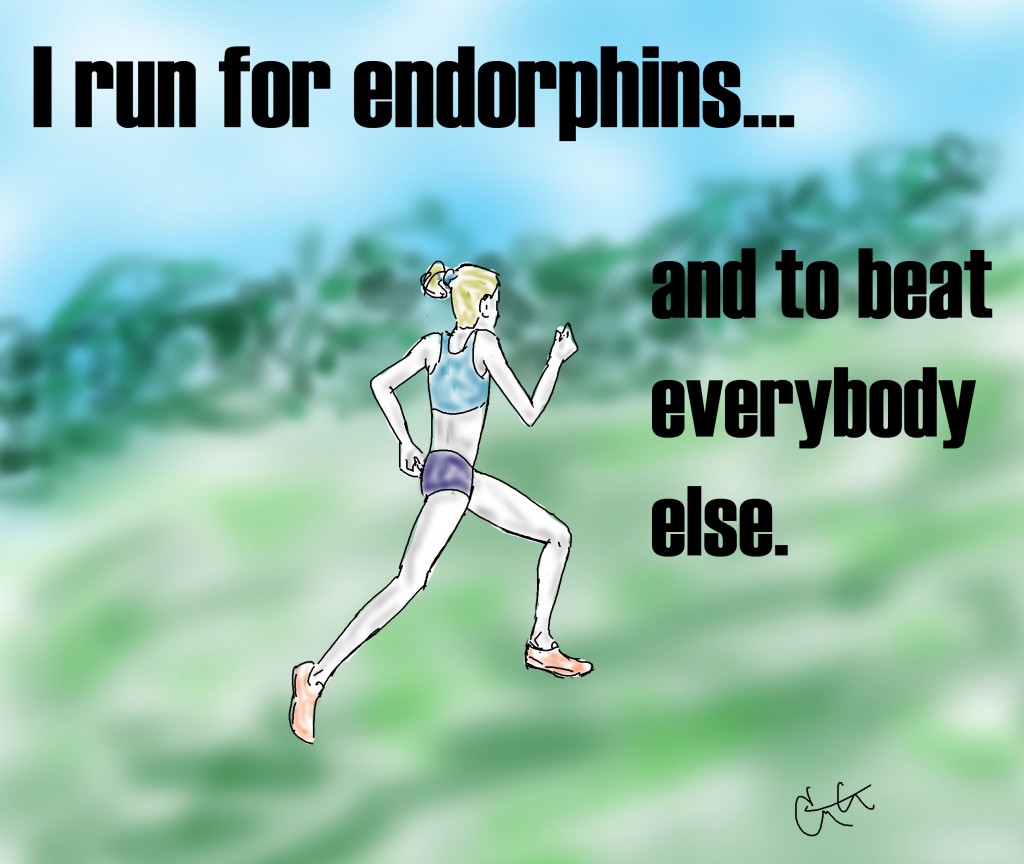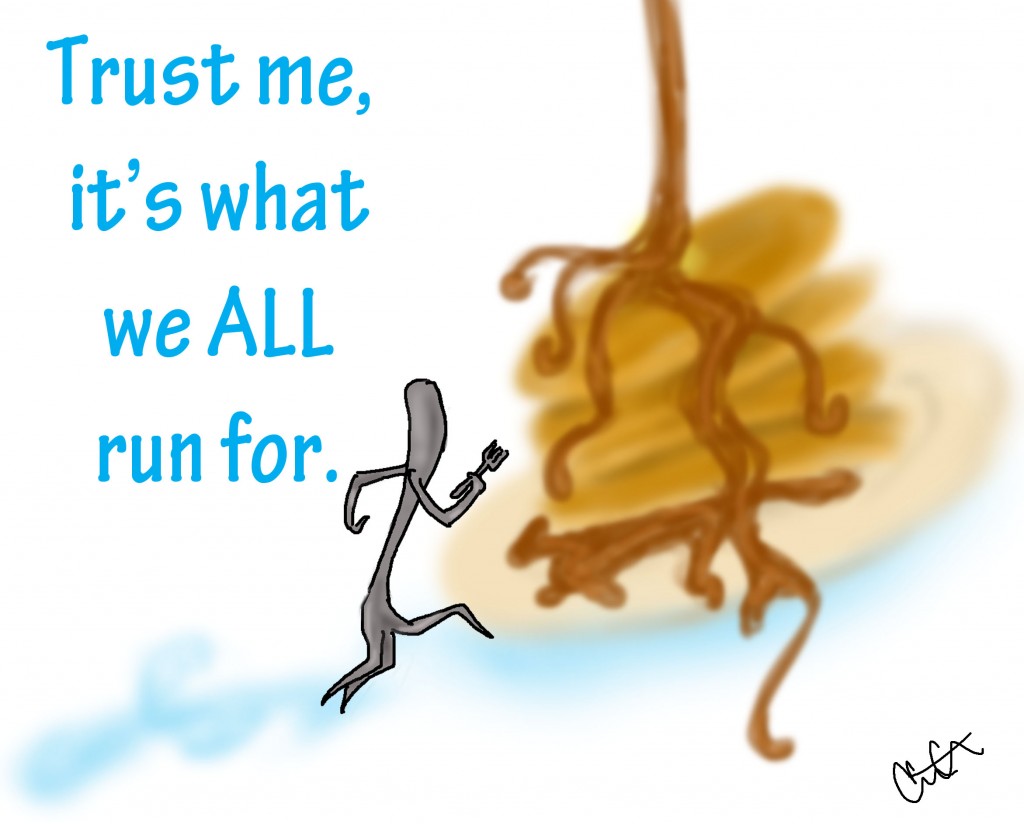Running on a gluten free diet may seem like more work than structuring your training regime. Though there are no shortage of runners ditching the gluten and raving that they are far better for it. Admittedly some were ‘forced’ into because they have an intolerance, celiac disease, but there are others that willingly did a diet overhaul.
I’m not going to lie, I’ve got friends who are gluten free (But being that ‘going gluten’ is basically trending on Twitter who doesn’t have friends who are eating this way?!) and I don’t envy the way they have to interrogate the kitchen staff and be extremely cautious when reading food labels. I honestly have no worries when it comes to the restaurant thing, it’s not that I mind it at all, I totally understand how important their questions are. To be frank, I think it just comes down to me being too ‘lazy’ to put in the work to get gluten-free savvy.
But I’m curious, just as many others, and had heard the benefits of going gluten-free for possibly reducing the amount of inflammation in your body and solving various GI problems. In case you missed it I wrote an article all about this over at Competitor: ‘Gluten Free = Inflammation Free?’. I also included a three day gluten-free sample menu.
The truth is, it’s not THAT incredibly complex, trust me 400 meter repeats are a far tougher pill to swallow. I’d say the hardest part would be the initial learning curve and getting used to what you ‘can’ and ‘can’t’ eat, remembering to double check labels and mostly getting used to how to travel and eat out without gluten sneaking in there.

I tapped into some AWESOME sources for this one, Krista Austin Ph.D and Amy Yoder Begley who has become sort of the poster runnerchick for going gluten-free. After you read the article, I’ll add a few more thoughts and tips that didn’t make it but I found interesting and worth mentioning.
* Amy’s Top Restaurant Picks: “For really important races, I try to go to places with a GF menu like PF Changes, Outback, etc. However, you need to make sure they have gluten-free prep not just gluten-free food. Things can’t be fried in the same oil as breaded items or grilled in the surface as bread. Cross-contamination is a word to know and ask questions till you feel comfortable, even if it takes 45 minutes,” Amy Yoder Begley explains that cross-contamination is probably the biggest hurdle when dining out.
* Kitchen Overhaul: The same issue applies to your own home kitchen and cooking habits, “To begin with GF eating you need to get rid of the old toaster, really clean down the grill or get new grill plates, and buy new cutting boards. I would also clean out the cupboards, wipe down all surfaces and read all ingredient labels until you know for sure what is in each item,” Yoder Begley explains. I actually roomed with Amy for a while and while her husband does not eat gluten free they are extremely well practiced in making sure none of his gluten products even come near Amy’s plate or food.
* Inflammation and Gluten: Austin explains that while gluten may cause extra inflammation, the biggest reason an athlete’s inflammation may go down as a result of a gluten-free diet is because you’ll be cutting out most of the overly-processed junk, “Usually if you do a gluten-free nutrition plan right, you end up replacing these [processed foods]…as a result, it automatically reduces the high percentage of unneeded trans fatty acids (most hydrogenated) and bleached, nutrient-less flour is removed from the diet. The extra chemically produced fats (think hydrogenated) are what fuel inflammation in the body, so if we eliminate them we will reduce inflammation. Bottom line: we eat cleaner more naturally found foods and thus inflammation goes down.”
* No Diet is a Magic Bullet: That said, I’ve talked a lot about how jumping into a certain style of eating, or overly-cleaning it up isn’t always the ‘best’ thing for your running or your sanity, and it really comes down to WHY you’re switching to a new style of eating. There is something to be said for both moderation and the old adage, ‘if the engine is hot, it’ll burn.’ Austin is frank about this, “However, as a side note, I know many an Olympic athletes, etc in the sport of running that eat horribly and still get the job done, (Although yet to medal so maybe this is why?) …in fact they are the guys on top! Eeeeek…so at the end of the day, the message is this: it’s how you train that matters most…however, if your fuel intake is too low or not adequate in some way, just know training is suffering and we are not optimizing performance.”
I think I’ll end or reiterating that fact: “It’s HOW you train that matters most.”
——–
Check out Amy’s excellent resource for eating gluten-free at her site, Gluten Free Olympian: GFOlympian.com
Check out more from Krista Austin at her own site: PerformanceAndNutritionCoaching.com
——–
1) Do you eat gluten free? Have you tried a gluten free diet for any sum of time and what was your experience?
2) What have you heard about eating gluten free? Benefits, drawbacks, etc.
3) What’s your stance on your running diet, how do you approach the fueling issue?
I make sure to get in enough calories, so that means eating things I want and aren’t exactly the ‘healthiest’…but at the same time I think of the ‘junk’ as ‘bonus’ after I’ve made sure to get in the good stuff and enough proteins and such. 😛


One of my friends had to go gluten free due to stomach issues, and I couldn’t do it. I have tried to cut out processed foods though, and I think that definitely helps my running.
yea, have to admit, i’m SO thankful i’m not gluten intolerant. 😛
I’ve never been gluten free, maybe I’ll try it a bit one day but not now. One of the sisters in my sorority has to eat gluten free, because she’s allergic to it.
I eat what makes me happy. I try to stay fairly healthy with fruits and vegetables but I don’t really limit myself.
eat wat makes u happy (and run well…hehe) i’ll toast to that! 🙂
This is a great post! I don’t have celiacs, but do often get a very bad upset stomach and bloating when I eat too much over processed junk. A lot of stuff I purchase are GF, but they are mostly snacking foods.
thanks!
I eat gluten free due to intolerance to wheat and a few other things (inherited due to some faulty genes – thanks grandma 😉 ).
I don’t know that it has made a huge difference to my running as I already had a pretty clean diet (kinda de rigeur for a dietitian), but it has made a huge difference to my mood. Now that I am not bloated or in pain after meals I feel a lot better, and that has certainly influenced my running. No one wants to feel gross and bloated when they step out the door for a run, and fine tuning my diet to work for me has helped that no end.
At the end of the day I don’t think there is ‘one diet fits all’. I choose a gluten-free vegetarian diet because that is what my body responds to the best. But for others that isn’t the case. As long as you focus on whole foods, cut out the processed trash, include treats in moderation (can’t live without cookies now can we?), and focus on a healthy relationship with food – those are the keys to a ‘healthy diet’. In my opinion at least.
oh man, if u ARE gluten intolerant i know it has to make a heck of a difference with just ur LIFE!! i’ve heard plenty how if u are gluten intolerant ur stomach stages one heck of a revolt on u if u eat the stuff! but u being the maven in the kitchen, i’m so happy u can cook up GF foodage that is just as (if not more!) DELISH as the ‘reg’ stuff. 🙂
I have Celiac’s, so I don’t have a choice but to be gluten-free, but I can honestly say that I wouldn’t EVER recommend it for anyone that doesn’t have to do it. It’s way healthier to eat a diet full of whole grains (including wheat) then most GF diets.
That being said, since I was SO sick before, going GF helped me, but only because gluten was making me so sick – not because of anhing inherently bad about gluten!
HOW in the world did this comment get put into my SPAM, lame WP but i fished it out!! thanks for sharing ur own insights, i’m sort of the same line of thinking as u, if u HAVE to eat GF then u can make it work for u and u’ll feel a world better for it! if u’re not intolerant just eating healthy on the whole should work well. 🙂
I’m just not that hard core! I have tried it before, but I didn’t find it helped much.
I feel like it’s more about minimising rather than cutting out gluten altogether. In reality, for me, toast is actually better than oats and yogurt or even fruit as a pre-run snack that won’t kill me.
Gluten free is huge at the moment – if it works for other people, great. I think I’ll stick to the occasional slice of gluten-tastic cake!
Thought provoking article Cait
glad u found it able to get those brain-juices working for you. 🙂
I have gone gluten free, and I love it. I have not been tested for celiac but I used to get monster migraines. I would get a migraine once or twice a month that would last on average three to four days. I still get one every once and a while (usually because I have been bad!) but they only last a day or two. I am so glad that I figured out the migraine mystery!
Oh and I am wayyyy less bloated then I used to be… sorry TMI… 😉
thanks for sharing morgan! i’m so sorry you’re prone to migraines, i can only imagine how horrible that’s been to go through, though i’m happy to hear that going GF has helped keep those at least at bay. and girl, on this blog there is no such thing as TMI…us runners all deal with not just bloat…but bathroom prob’s galore! 😛
Pingback: The REAL Reason We All Run… |
Pingback: Downing Donuts and Crunching Carrots: Runners balancing their nutrition |
Pingback: Running Humor: It’s really not funny, but then, again it is |
Pingback: Runner’s Strip: Runner’s Math |
Pingback: Running and the Science of Nutrient Timing: WHEN to eat to best fuel your performance |